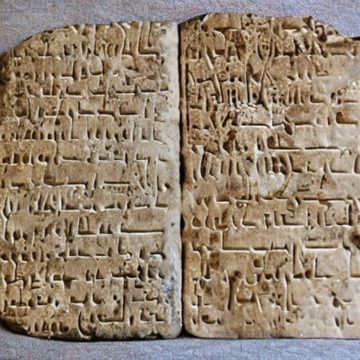 Sophus Helle in Aeon:
Sophus Helle in Aeon:
About 4,200 years ago, the area we now call southern Iraq was rocked by revolts. The once-independent Sumerian city states had been brought under one rule by the legendary king Sargon of Akkad. Over the course of what modern historians call the Old Akkadian period, the reign of Sargon and his successors reshaped the newly conquered cities in countless ways: old nobles were demoted and new men brought to power, old enemies were defeated and new standards of statecraft imposed. The Sumerian world grew much bigger and richer, but also more unstable. Discontent with the new empire festered, provoking a steady stream of uprisings as the cities attempted to regain their independence.
One such revolt is depicted in a fascinating poem known as ‘The Exaltation of Inana’. Besides being a poetic masterpiece in its own right, ‘The Exaltation’ bears the distinction of being the first known work of literature that was attributed to an author whom we can identify in the historical record, rather than to an anonymous tradition or a fictional narrator. The narrator of the poem is Enheduana, the high priestess of the city of Ur and the daughter of Sargon. According to ‘The Exaltation’, she was cast into exile by one of the many revolts that plagued the Old Akkadian Empire.
More here.
